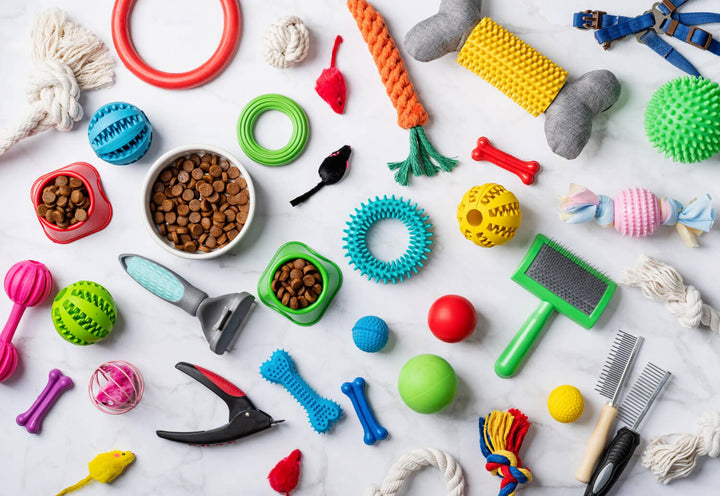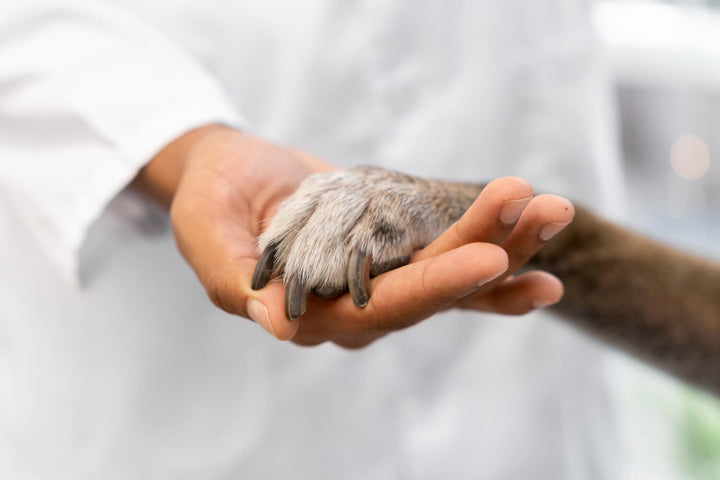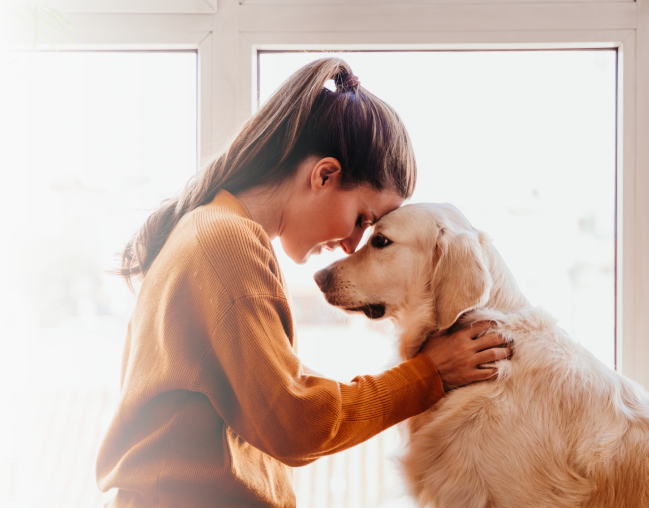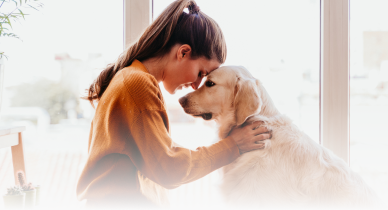The Cane Corso - Majestic, Mighty, and Marvelous. The Cane Corso is not just a breed; it's a faithful guardian, a loving family member, and a symbol of strength and loyalty. As you explore more about this remarkable breed, you'll discover a world of devotion and companionship that these majestic dogs bring into the lives of those fortunate enough to have them as part of their families.
Did You Know these Facts about the Cane Corso?
-
The Cane Corso, often called the Italian Mastiff, has a lineage tracing back to ancient Roman war dogs. They were originally bred to protect homes, hunt game, and even battle alongside Roman soldiers.
-
These dogs are renowned for their incredible muscular build and imposing presence. Adult males typically weigh between 90 to 120 pounds, while females are slightly smaller, ranging from 80 to 100 pounds.
-
The Cane Corso's loyalty knows no bounds. They are not only excellent protectors but also affectionate family members. Their gentle and loving nature with their human pack is a stark contrast to their fierce protective instincts.
-
Cane Corsos exhibit a sleek and dense coat in various colors, including black, fawn, gray, and red. Their striking appearance, with a broad head and expressive eyes, gives them an air of nobility.
- While their appearance may seem high-maintenance, Cane Corsos are relatively easy to groom. Their short coat requires minimal brushing, and they shed moderately throughout the year.
The Cane Corso's popularity has surged in recent years. In the American Kennel Club (AKC) rankings it achieved the #18 position in the popularity list of 2022. Its combination of guardian instincts and affectionate temperament has won the hearts of many dog enthusiasts.

Traits of the Cane Corso Breed
Overall Personality. Cane Corsos are known for their calm, confident demeanor. They are incredibly loyal and protective of their families, making them excellent watchdogs. Despite their imposing appearance, they are gentle giants within the home.
Family Life. These dogs thrive in a family environment where they can bond closely with their human pack. They are affectionate with children and can be remarkably patient and tolerant.
Physical Appearance. Cane Corsos have a robust and muscular build with a broad head and strong jaw. Their coat is short and dense, coming in various colors. Their alert, almond-shaped eyes convey intelligence and awareness.
Sociability. Early socialization is crucial for Cane Corsos. Proper training and exposure to various people and animals help ensure their balanced and well-mannered behavior. They tend to be reserved around strangers but are deeply devoted to their families.
Average Sizes & Life Expectancy
- Height: 25 to 27.5 inches tall (63.5 to 70 cm)
- Weight: 80 to 120 pounds (36 to 54 kg)
- Life Expectancy: Around 9 to 12 years
Detailed Description of the Cane Corso Breed
Physical Appearance. The Cane Corso is an impressive and striking breed with a robust and well-muscled build. Their physical presence is both imposing and elegant. They are large dogs with a noble head, characterized by a powerful jaw and deep-set expressive eyes. The ears are typically cropped, standing erect, adding to their commanding appearance. However, many countries have banned ear cropping, and natural, floppy ears are common.
Their coat is short, stiff, and dense, providing protection against various weather conditions. Cane Corsos come in various colors, including black, fawn, gray, and red. A distinguishing feature is the black mask that often covers their muzzle, enhancing their dignified expression.
Temperament and Personality. The Cane Corso is renowned for its temperament, which combines loyalty, protectiveness, and affection. These dogs are incredibly devoted to their families, forming strong bonds with each member. They have a natural protective instinct, making them excellent watchdogs.
Despite their protective nature, Cane Corsos are known for their gentle and affectionate behavior towards their families. They are especially patient and tolerant with children, often assuming a guardian role.
Cane Corsos are intelligent and trainable, although they can be somewhat independent. Early socialization and consistent training are essential to ensure that they develop into well-rounded and well-behaved adults.
Adaptability. Cane Corsos are adaptable dogs, but they thrive in an environment where they receive attention, love, and interaction. They are known to be versatile, comfortable in both urban and rural settings. However, it's essential to provide them with ample exercise and mental stimulation.
Their protective nature makes them well-suited for families and individuals looking for a loyal companion and a guardian of the home. They tend to be reserved around strangers, making them excellent choices for home security.
Care Guidelines. Cane Corsos are active dogs that require regular exercise to stay healthy and happy. Daily walks, playtime, and mental stimulation are essential. However, excessive exercise should be avoided during their growth period to protect their developing joints. Grooming needs are minimal due to their short coat. Regular brushing helps manage shedding, and baths can be given as needed. Routine ear cleaning and dental care are also essential.
Like all breeds, Cane Corsos are prone to certain health issues, including hip dysplasia, bloat, and entropion (a condition where the eyelids roll inward). Regular veterinary check-ups and a balanced diet are crucial for maintaining their health.
Training Strategies. Training a Cane Corso requires patience, consistency, and positive reinforcement. They respond well to firm but gentle handling. Socialization from a young age is critical to ensure they are comfortable around other dogs and people. Early obedience training sets the foundation for a well-behaved adult Cane Corso.
Notable in History and Pop Culture. The Cane Corso's history is deeply intertwined with Italy, where it was originally bred for various tasks, including guarding livestock and property. In ancient times, they were used as hunting and war dogs by the Romans.
In pop culture, the Cane Corso has made appearances in various movies and TV series. Their imposing appearance and loyal character have made them popular choices for roles of guardian and protector.
What to expect when living with the Cane Corso Breed
Personality. Cane Corsos are known for their unwavering loyalty and protective nature. They form strong bonds with their families and often see themselves as guardians. Expect a dog that is affectionate, patient, and deeply attached to its human companions. They can be reserved around strangers, which makes them excellent watchdogs.
Ideal Environment. While intelligent, Cane Corsos can also be independent, making consistent and positive reinforcement training essential. Early socialization is crucial to ensure they are well-adjusted and comfortable around other dogs and people. Their protective instincts should be channeled appropriately through training. These adaptable dogs can thrive in various living environments, including apartments and houses with yards. What they truly need is ample attention, love, and interaction with their family members. While they are comfortable indoors, they enjoy outdoor activities, so access to a secure yard is beneficial.
Maintenance Level. Cane Corsos are relatively low-maintenance due to their short coats. Regular brushing helps manage shedding, and baths can be given as needed. Routine ear cleaning and dental care should be part of their grooming routine. It's also essential to trim their nails regularly.
Overall Health Expectations and Best Health Tests for the Cane Corso Breed
Health Considerations. Cane Corsos are susceptible to several health problems, including hip dysplasia, which is a common issue in larger breeds. Bloat, a condition where the stomach fills with gas, is another concern, and prompt veterinary attention is crucial if you suspect this condition. Entropion, a condition where the eyelids roll inward, can affect their eyes, requiring corrective surgery.
Recommended Health Tests. Responsible breeders conduct health tests to ensure the breeding dogs are free from hereditary diseases. These tests may include hip and elbow evaluations, cardiac screenings, and eye examinations. It's essential to obtain a puppy from a reputable breeder who conducts these tests to reduce the risk of hereditary health issues.
Routine veterinary check-ups are essential for the Cane Corso's overall health. Regular vaccinations, parasite control, and dental care are part of their healthcare regimen. Owners should pay attention to any changes in behavior, appetite, or activity levels and consult a veterinarian if any concerns arise.
Best Nutrition, Diet & Supplements for the Cane Corso Breed
Nutrition and Diet. Start with a premium-quality dog food that lists meat as the first ingredient. Protein-rich diets with moderate fat content are ideal for Cane Corsos, as they are an active breed with considerable muscle mass. Look for options that are formulated for large breeds or, more specifically, for Cane Corsos.Some owners prefer preparing homemade diets for their Corsos. If you choose this route, work closely with a veterinarian or canine nutritionist to ensure your dog receives all essential nutrients in the correct proportions.
Keep a close eye on your Cane Corso's weight to prevent obesity. Overfeeding can put additional stress on their joints and exacerbate certain health issues. Consult your veterinarian to determine the appropriate portion size for your dog based on age, activity level, and weight.
Hydration is Key. Ensure your Cane Corso always has access to fresh, clean water. Proper hydration is vital for digestion, temperature regulation, and overall vitality.
Supplements. While a well-balanced diet should provide most of the necessary nutrients, some supplements can benefit Cane Corsos. These include glucosamine and chondroitin, which help support joint health, especially as the breed ages. Omega-3 fatty acids can also contribute to their coat and skin health.
Foods to Avoid. Steer clear of dog foods that contain excessive fillers like corn, wheat, or soy, as well as low-quality by-products. These ingredients offer limited nutritional value and can lead to digestive issues in sensitive Corsos. Foods that are toxic to dogs, such as chocolate, grapes, onions, and garlic, should be kept far away from your Cane Corso. These can lead to serious health issues or even be fatal. Like all breeds, Cane Corsos can have food allergies or sensitivities. If you notice signs like skin irritations, digestive problems, or excessive scratching, consult your vet to identify potential allergens in their diet.
Grooming Requirements for the Cane Corso Breed
Coat Maintenance and Shedding. Weekly brushing with a soft-bristle brush or rubber curry brush helps remove loose hair and distributes natural oils for a shiny coat. During seasonal changes, Corsos may shed more, so more frequent brushing may be needed.
Paw Care and Hygiene. Inspect their paws for cuts, debris, or foreign objects. Keeping the paw pads clean and trimmed will help prevent discomfort or injury. Trim their nails regularly to prevent overgrowth, which can lead to discomfort and affect their gait. If you're uncomfortable doing this yourself, ask a groomer or vet for assistance.
Ear Care. Check their ears weekly for signs of infection, like redness, odor, or excessive wax buildup. Gently wipe the ears with a damp, clean cloth to prevent issues.
Bathing Frequency. Corsos are generally clean dogs, and they typically don't have a strong doggy odor. You can bathe them as needed, but overbathing can strip their coat of essential oils. Use a dog-specific shampoo to maintain the coat's health.
Exercise Required for the Cane Corso Breed
Corsos should have at least one hour of exercise every day. Daily walks are essential for mental stimulation and physical activity. Aim for walks of at least 30 minutes each, preferably in the morning and evening. These dogs enjoy interactive play, like fetch or tug-of-war. Engaging in these activities can help build the bond between you and your Corso while providing physical exercise.
Corsos are intelligent dogs that benefit from mental challenges. Puzzle toys, obedience training, and agility courses can keep their minds sharp and provide exercise. If you have access to a secure, fenced area, Corsos can enjoy some off-leash time. This allows them to run freely, which they love.
Socialize your Corso from a young age. They should interact with various people, animals, and environments to become well-rounded and confident adults. Be mindful not to overexert your Corso, especially in extreme heat or cold. Their short nose can make them susceptible to heatstroke, so ensure they stay hydrated and cool during exercise.
Training Tips for the Cane Corso Breed
Training a Cane Corso requires a firm but gentle approach. They are intelligent and eager to please, but they can be independent.
Do…
- Begin training and socialization as soon as you bring your Corso puppy home. Early exposure to different people, animals, and environments is crucial for well-rounded behavior.
- Use consistent commands and rewards to reinforce desired behavior. Corsos respond well to positive reinforcement techniques like treats, praise, and play.
- Establish clear rules and boundaries from the beginning. Corsos need to know their place in the family hierarchy.
Don't…
- Use harsh training methods, as Corsos are sensitive and may become fearful or aggressive if treated roughly.
- Skip training. Enroll your Corso in obedience classes to ensure they learn basic commands and socialize with other dogs.
- Tolerate bad behavior. Early training can help prevent aggressive behavior. If your Corso shows signs of aggression, consult a professional dog trainer or behaviorist.
The Cane Corso Breed is Suitable For
Corsos are large dogs and do best in homes with ample space, such as a house with a fenced yard. They are not well-suited for small apartments or homes with limited room to move. These dogs thrive in family environments. They are known for their affection and protective nature, making them great companions for families with children. However, their size and strength should be taken into account when there are small children in the home.
Corsos are active dogs and require regular exercise. They do well in homes with active individuals or families who can provide daily walks and playtime. If you're an active person looking for a jogging or hiking partner, a Corso might be an excellent fit. While Corsos are loyal and loving, they are a powerful breed that requires an experienced owner who can establish leadership and provide consistent training. First-time dog owners may find Corsos challenging to handle.
Corsos should be raised in homes where they can be well-socialized from an early age. They need exposure to various people, animals, and environments to develop into well-rounded adults.
The Cane Corso Breed is Not Suitable For
Due to their size and need for space and exercise, Corsos are not well-suited for apartment living. They require room to move and play. Corsos are social dogs and require human interaction. They are not suitable for homes where they'll be left alone for long periods.
Corsos are a powerful breed with strong protective instincts. They may not be the best choice for first-time dog owners who are not familiar with large, strong breeds. While Corsos can get along with other animals, they have a strong prey drive and may not be suitable for homes with small pets like cats or rabbits unless introduced and socialized carefully.
Famous Cane Corso Owners
-
Jason Momoa - The actor, known for his roles in "Game of Thrones" and "Aquaman," is a proud owner of a Cane Corso named "Nakoa-Wolf." He often shares photos of his beloved Corso on social media.
-
Sylvester Stallone - The legendary actor, best known for his portrayal of Rocky Balboa, has owned Cane Corsos. His Corso, "Sultan," even appeared alongside him in the film "Rocky Balboa."
- Ronda Rousey - The former UFC fighter and WWE wrestler has a soft spot for Cane Corsos. She has shared her love for the breed on social media and owns a Corso named "Mochi."
Accomplishments of the Cane Corso Breed
Historically, Corsos were used as guardian dogs for farms and estates. Their protective nature and loyalty made them invaluable protectors of livestock and property. Corsos have been employed in search and rescue missions, using their keen sense of smell and tracking abilities to locate missing persons. Their strength and intelligence have made Corsos suitable candidates for police and military work in some regions.
While not as commonly depicted as some other breeds, Cane Corsos have made appearances in movies and TV series, often cast as powerful and imposing characters due to their impressive stature and commanding presence.
Overall, the Cane Corso is celebrated for its roles as a loyal family companion and a capable working dog, making it a breed of great distinction and purpose.

The History of the Cane Corso Breed
The history of the Cane Corso is a tale of evolution from a formidable ancient Roman war dog to a beloved family companion. The breed's roots can be traced back to ancient Italy, where it was initially developed in the southern regions.
Creation and Purpose. The Cane Corso's ancestors were massive Molossus dogs, which were used by the Romans as war dogs and guardians. These dogs were renowned for their strength, loyalty, and protective instincts. They played a crucial role in Roman military campaigns, working alongside soldiers in various roles, including guarding outposts and even accompanying troops into battle.
As the Roman Empire expanded and evolved, so did the roles of these dogs. They adapted to new tasks such as herding livestock and working on farms, demonstrating their versatility and intelligence. Over time, they became known as "Cane da Macellaio," or Butcher's Dogs, as they were often used by butchers to control cattle.
Early Roles and Evolution. The Cane Corso's decline began in the 20th century due to several factors, including the mechanization of agriculture and the impact of World Wars. By the mid-20th century, the breed was nearly extinct. Fortunately, a group of dedicated enthusiasts in Italy took action to preserve the breed.
Through careful breeding programs and the efforts of passionate breeders, the Cane Corso made a remarkable recovery. Its numbers began to increase, and it regained recognition for its exceptional qualities. The breed's standard was refined, and it was officially recognized by major kennel clubs, including the American Kennel Club (AKC).
Changes and Modern Impact. Today, the Cane Corso thrives in various roles. While it retains its protective instincts and loyalty, it is primarily cherished as a loving and devoted family companion. It is known for its intelligence, trainability, and adaptability, making it a popular choice for families seeking a reliable and affectionate pet. Additionally, some Corsos continue to serve as working dogs, excelling in roles such as therapy dogs, search and rescue, and even in police work.
In summary, the Cane Corso's history is a testament to its resilience and adaptability. From its origins as a fearsome warrior and guardian to its current status as a beloved family member, the breed has undergone significant changes while retaining its core characteristics of loyalty and strength. Today, the Cane Corso stands as a symbol of the enduring bond between humans and their canine companions.
The Cane Corso Breed Standard
The Cane Corso belongs to the "Working Group" according to the American Kennel Club (AKC). This group comprises breeds originally bred for various tasks, such as guarding, herding, and pulling carts. The Cane Corso fits well into this group due to its history as a versatile working dog.
The AKC's formal breed standard for the Cane Corso describes the ideal dog of this breed. It is a detailed document that serves as a guideline for breeders and judges in dog shows. The standard covers aspects such as size, structure, coat color, and temperament. It emphasizes that the Cane Corso should be well-muscled, confident, and alert. For the complete standard, you can refer to the AKC's official website.
The national breed club for the Cane Corso in the United States is the "Cane Corso Association of America" (CCAA). Their website, www.canecorso.org, is a valuable resource for anyone interested in the breed. The CCAA provides information about breed characteristics, health, and responsible breeding practices. They also offer breeder directories and educational materials.
General Appearance
Head, Muzzle, Nose. The Cane Corso's head is imposing and noble. It is large in proportion to the body, giving the breed its distinctive and commanding appearance. The skull is broad and slightly curved between the ears. The muzzle of the Cane Corso is as broad as it is long, with a well-defined stop. The nose is large and black, adding to the breed's striking facial features. In rare cases, lighter coat colors may have a matching lighter nose pigment.
Teeth. Cane Corsos have strong jaws with a scissor bite, where the upper teeth overlap the lower teeth. Their teeth should be healthy and well-aligned, contributing to their powerful bite force.
Neck. The neck of a Cane Corso is muscular, arched, and of moderate length. It blends smoothly into the shoulders, giving the dog an elegant yet robust appearance.
Body. The body is well-muscled, with a deep and broad chest that extends down to the elbow. The back is straight and firm, leading to a muscular and slightly sloping croup. The ribs are well-sprung, contributing to the breed's athleticism.
Tail. The tail of the Cane Corso is set high and is traditionally docked to a short length. In countries where docking is prohibited, the natural tail is thick at the base and tapers to a point. It is carried straight or in a gentle curve.
Coat. The breed has a short and dense coat that lies close to the body. The hair is stiff to the touch and provides protection against various weather conditions. Accepted coat colors include black, fawn, chestnut brindle, and gray. Limited white markings are permissible on the chest, toes, and chin.
Size. Cane Corsos are large and imposing dogs. Males typically stand between 25 to 27.5 inches at the shoulder and weigh between 100 to 110 pounds. Females are slightly smaller, standing between 23.5 to 26 inches and weighing between 80 to 90 pounds.
Gait. The Cane Corso's gait is powerful and balanced. When in motion, their stride is smooth, with a good reach in front and strong drive from the rear. This efficient movement reflects the breed's athleticism and agility.
Reputable Breeders
For those seeking a well-bred Cane Corso, there are reputable breeders who prioritize health, temperament, and the breed's standard. Here are a few notable breeders:
Top Shelters for Adoption
Adopting a dog can be a rewarding experience. Here are a few shelters where you might find a Cane Corso in need of a loving home:
Top 5 Frequently Asked Questions & Answers about the Cane Corso Breed
How big do Cane Corsos get?
Cane Corsos are large dogs, with males typically standing between 25 to 27.5 inches at the shoulder and females between 23.5 to 26 inches. Weight varies, but males can weigh between 100 to 110 pounds, while females typically weigh between 80 to 90 pounds.
Are Cane Corsos good family pets?
Yes, Cane Corsos can make excellent family pets. They are known for their loyalty and protective nature. Due to their size and weight, they may not be the best choice for families with very young childrem. Early socialization and proper training are vital for a well-behaved family companion.
Do Cane Corsos require a lot of exercise?
While they are not hyperactive dogs, Cane Corsos do need regular exercise to stay healthy and happy. Daily walks and playtime are essential to meet their exercise needs.
Are Cane Corsos good with children?
When properly socialized and trained, Cane Corsos can be great with children. They are often protective of their families, including kids.
Do Cane Corsos shed a lot?
Cane Corsos have short, dense coats that shed moderately. Regular grooming can help manage shedding.
A Final Tip for Bringing a Cane Corso into Your Life
Bringing a Cane Corso into your life can be incredibly rewarding. These dogs are known for their loyalty, intelligence, and protective instincts. However, they also require early socialization, consistent training, and regular exercise. Finding a responsible breeder or considering adoption is the first step. Whether you choose a Cane Corso as a family pet or a working companion, their unwavering devotion will undoubtedly make them a cherished member of your household.
Valuable Resources for Your Journey to Parenting a Cane Corso
At Felicitails you will find many wonderful services, supplies and guides for your life ahead with a loving pup at your side.

Hope You Enjoyed The Read!
Tag Cloud

A warm welcome from Lindsay & Huck (my English Pointer). Hope you enjoy the read and find just what you are looking for when it comes to living your best life with your loved pets.

-
Dog Breeds
(42)
-
Emotional Support Animals
(10)
-
Dog Grooming
(6)
-
Dog Health
(18)
-
Life with a Dog
(18)
-
Dog Nutrition
(11)
-
Service Animals
(11)
-
Dog Training
(5)






